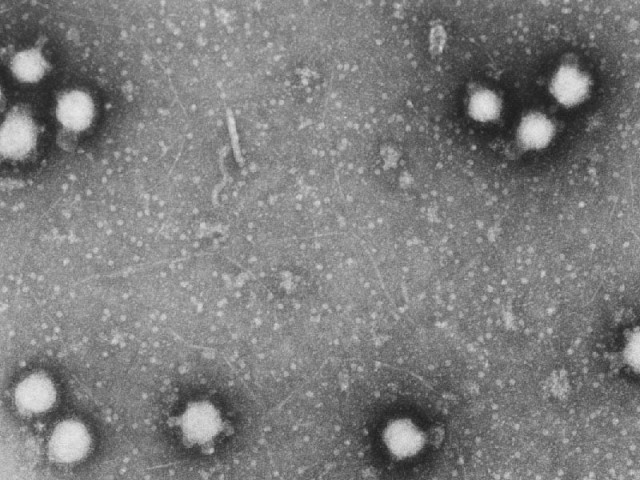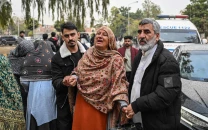Karachi sets up Congo unit to deal with virus
Move comes a day after a Quetta doctor succumbed to the disease

The Sindh government acted on a war footing to take measures to deal with an influx of Congo virus cases from Balochistan, establishing an eight-bed Congo unit at the Infectious Diseases Hospital and reactivating the Infection Control Unit at the city’s largest Civil Hospital, officials said on Monday.
Confirming the arrival of Congo virus patients in Karachi from Balochistan, Sindh Health Minister Dr Saad Niaz told The Express Tribune that all possible medical assistance would be provided by the provincial government to Congo virus patients from Balochistan.
The Crimean-Congo Haemorrhagic Fever (CCHF), or simply Congo virus, is a viral disease, which is transmitted to humans through tick bites or contact with infected animal blood or tissues. The virus is primarily found in Africa, Asia, the Middle East, and some parts of Europe.
Pakistan, off and on, has been witnessing the outbreak of Congo virus cases over the past many years. This year’s first fatality from the deadly virus emerged on May 7.
Another case of the viral infection emerged on Oct 17 in Quetta.
The latest wave of the disease was detected on Nov 3, when 112 people, including duty doctors, paramedics and attendants, at the intensive care unit (ICU) of the Sandeman Hospital were infected.
The Balochistan government said 44 Congo virus patients belonged to Quetta.
On Sunday, one of the infected doctors from Quetta died during the treatment at a hospital in Karachi. The death of the doctor prompted the Sindh Health Department to issue an advisory alert to all the hospitals, while the Balochistan government a province-wide red alert.
At present, 11 suspected Congo virus patients, including two women, are admitted to Aga Khan Hospital, Karachi. Shabir Alam, the spokesperson for the Aga Khan Hospital, said that nine patients with symptoms of Congo virus were brought to the hospital on Sunday.
“These patients are kept in the intensive care unit of the hospital. Congo virus is confirmed in four of these patients while the blood samples of five patients are in clinical testing stages, as the results are still awaited, Alam told The Express Tribune.
According to Health Minister Niaz, if more patients were brought to Karachi, they would be placed in the Infectious Disease Hospital, which works under the Dow Medical University and is located at the city’s Nipa Chowrangi.
“An eight-bed Congo Unit has been established at the hospital,” he added.
When contacted, the Infection Disease Hospital Director, Dr Wahid Rajput, said that till Monday, no Congo virus patient was brought to the hospital. However, he assured that the hospital was capable of treating all types of infections.
Dr Khalid Bukhari, the medical superintendent of Civil Hospital, Karachi, which housed the Dow Medical University, said that the hospital’s Infection Control Unit had been reactivated with the deployment of necessary staff and equipment, including personal protection gear.
The Aga Khan Hospital spokesperson said that the medical staff had been provided personal protective equipment (PPE) such as hazmat suits and other items. “A ban has also been placed on the movement around the unit of the patients infected with the Congo virus.”
Following the death of Dr Shukarullah on Sunday, who had been serving at the Civil Hospital Quetta, and the emergence of eight other suspected cases, the Sindh government issued the advisory to all large and small hospitals across the province.
Through the advisory, the health department instructed for adopting precautionary measures against the Congo virus. The department also issued a red alert for the hospitals in Karachi and issued standard operating procedures (SOPs) regarding the Congo virus.
“All hospitals in Karachi will ensure implementation of the SOPs,” Director Health Dr Hameed Jamani said. The SOPs stated that patient should be immediately transferred to an infection control isolation unit, adding that safety measures, including PPE kits, to doctors and medical staff must be ensured.



















COMMENTS
Comments are moderated and generally will be posted if they are on-topic and not abusive.
For more information, please see our Comments FAQ